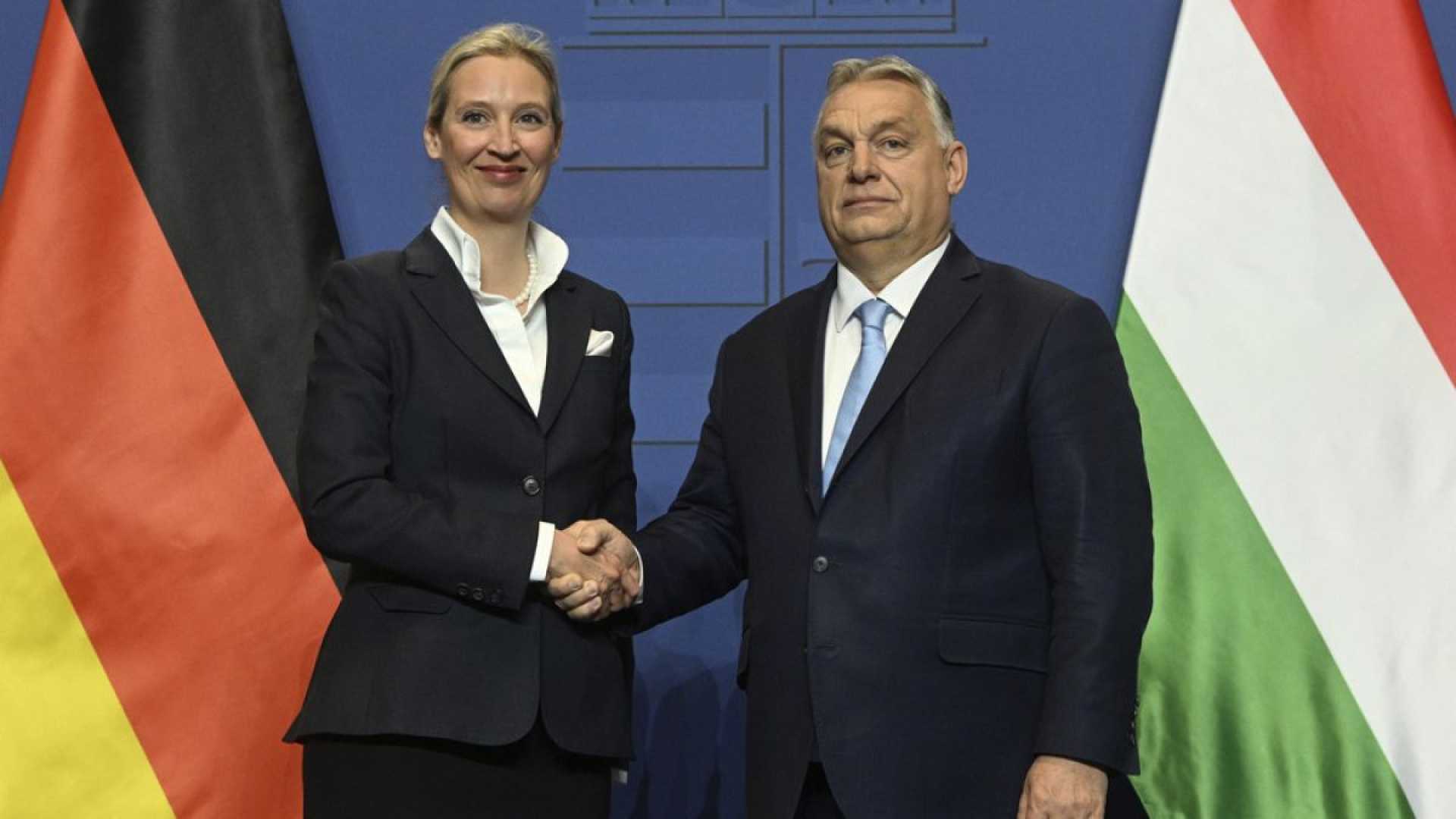Politics
Alice Weidel: AfD’s Chancellor Hopeful Amidst Political Controversies

BERLIN, Germany — As Germany prepares for parliamentary elections on Sunday, February 23, attention is squarely focused on the Alternative for Germany (AfD) and its chancellor candidate, Alice Weidel. The far-right party is unlikely to secure enough support to form a government due to a longstanding policy known as the ‘firewall’, where other parties refuse to collaborate with the AfD. However, polls indicate that the AfD could become the second-largest party in the parliament.
According to reports, Weidel has gained notable attention following a live-streamed chat with Elon Musk on social media platform X, where Musk praised her as “the leading candidate to run Germany.” The party’s stance on immigration and economic policies continues to resonate with a significant portion of the electorate.
Weidel, 46, was born in North Rhine-Westphalia to a middle-class Catholic family. She pursued a degree in economics and worked at prestigious institutions, including Goldman Sachs and the Bank of China. Her economic liberalism has drawn comparisons to former British Prime Minister Margaret Thatcher, whom she cites as an inspiration for her political career.
Despite her party’s controversial history, including an investigation revealing that her grandfather was a Nazi judge, Weidel has held firm on her political beliefs. Critics point out that the AfD has often engaged in revisionist approaches to Nazi history. Weidel’s comments related to the Nazi era and her past statements about immigration have further stirred public debate.
Weidel is in a civil partnership with filmmaker Sarah Bossard, and they have two children. This personal detail contrasts sharply with the AfD’s traditional stance on family values, leading to discourse surrounding her identity as an LGBT+ member within a party known for its conservative views. Weidel has downplayed this, positioning herself as a proponent of family, defined by those with children.
The AfD’s rise can be attributed to increasing discontent regarding immigration, particularly following the influx of refugees in 2015. Weidel has been vocal against current immigration policies and has used incendiary language to rally support for the party’s platform, which includes calls for deportations of immigrants deemed not “ethnically” European.
Looking ahead, Weidel has suggested that if the political environment changes, the AfD could benefit from emerging alliances, especially following recent comments from conservative leaders hinting at indirect cooperation. The party’s electoral strategy continues to center on anti-immigration sentiments and economic policy reform, including a proposed exit from the European Union.
Political scientists view Weidel’s candidacy as a calculated move, enabling the AfD to appeal to a broader spectrum of voters beyond traditional far-right supporters. As Germany approaches a turning point in its political landscape, how voters respond to Weidel’s candidacy and the AfD’s platform remains to be seen as election day approaches.












